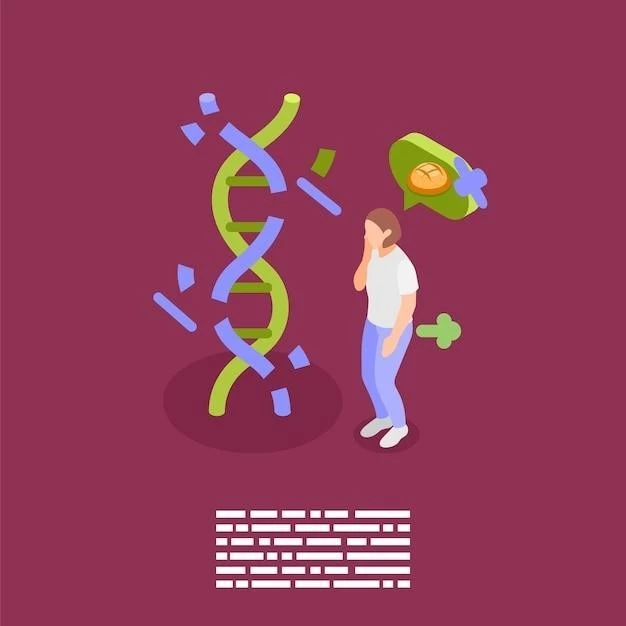Plan⁚ Understanding Chromosome 13 Ring Abnormality
When facing Chromosome 13 Ring Abnormality, understanding the condition is crucial. Familiarize yourself with the symptoms, treatment options, impact on children, and the importance of genetic counseling. Stay informed about the latest research updates and focus on coping strategies. Remember, maintaining a positive outlook is key for individuals affected by this disorder.
Symptoms of Chromosome 13 Ring Disorder
Understanding the symptoms of Chromosome 13 Ring Disorder is crucial in managing the condition effectively. Common symptoms may include intellectual disability, slow growth, distinctive facial features, heart defects, vision and hearing problems, seizures, and delayed development. It is important to consult with medical professionals to properly diagnose and treat any associated health issues promptly.
Individuals with Chromosome 13 Ring Disorder may also experience speech delays, feeding difficulties, skeletal abnormalities, and kidney problems. This complex chromosomal abnormality can vary in severity from person to person, so it is essential to monitor and address symptoms proactively with the guidance of healthcare providers. Early intervention and a tailored treatment plan can improve quality of life and overall well-being for those affected by this disorder.
Treatment Options for Chromosome 13 Ring Disease

When exploring treatment options for Chromosome 13 Ring Disease, it’s vital to create a comprehensive care plan tailored to the individual’s specific needs. Depending on the symptoms present, treatment strategies may include early intervention services, speech therapy, physical therapy, occupational therapy, special education programs, and medications to manage seizures or other medical conditions.
Medical intervention for heart defects, vision or hearing problems, and other physical abnormalities may also be necessary. Surgery could be considered in some cases to address certain health issues associated with Chromosome 13 Ring Disorder. Genetic counseling is essential for families to understand the condition, discuss potential risks, and make informed decisions regarding treatment options.
Collaborating closely with a multidisciplinary team of healthcare professionals, including geneticists, pediatricians, therapists, and specialists, can ensure a holistic approach to managing the disorder. By providing ongoing support and monitoring the individual’s progress, treatment goals can be adjusted as needed to optimize outcomes and enhance quality of life.
Chromosome 13 Ring Disorder in Children
Chromosome 13 Ring Disorder can present unique challenges in children, requiring specialized care and support. Early detection and intervention are key to managing the impact of this condition on a child’s development. Children with Chromosome 13 Ring Disorder may exhibit delays in motor skills, speech, and cognitive abilities.
It’s essential for parents and caregivers to work closely with healthcare providers to coordinate a comprehensive treatment plan that addresses the child’s specific needs. This may involve regular medical evaluations, therapy sessions, educational support, and monitoring for any associated health issues.
Supporting the child’s overall well-being through a nurturing and understanding environment is crucial. Encouraging social interactions, providing opportunities for play and learning, and promoting a healthy lifestyle can all contribute to the child’s growth and development. Seeking guidance from pediatric specialists and genetic counselors can help families navigate the challenges of raising a child with Chromosome 13 Ring Disorder.
Genetic Counseling for Chromosome 13 Ring Syndrome
Genetic counseling plays a crucial role in providing information and support to individuals and families affected by Chromosome 13 Ring Syndrome. Counselors can help explain the genetic basis of the disorder, discuss inheritance patterns, and address any concerns about recurrence risks.
When considering genetic counseling for Chromosome 13 Ring Syndrome٫ it’s important to seek out professionals with experience in rare genetic conditions. These experts can offer personalized insights based on genetic testing results and family history٫ empowering individuals to make informed decisions about family planning and healthcare management.
Genetic counselors can also facilitate communication between families and healthcare providers, ensuring that everyone involved is on the same page regarding treatment options, support services, and long-term care planning. By fostering open dialogue and providing emotional support, genetic counseling can help families navigate the complexities of living with Chromosome 13 Ring Syndrome.
Research Updates on Chromosome 13 Ring Condition
Staying informed about the latest research developments on Chromosome 13 Ring Condition is essential for individuals, families, and healthcare professionals. Ongoing studies are expanding our understanding of the genetic and medical aspects of this rare disorder, leading to advancements in diagnosis, treatment, and management.
Researchers are continuously exploring new techniques for genetic testing, identifying potential interventions for symptom management, and investigating the underlying mechanisms of Chromosome 13 Ring Syndrome. By participating in clinical trials and research initiatives٫ individuals affected by this condition can contribute to the collective knowledge and potentially benefit from innovative therapies in the future.
It is advisable to follow reputable medical journals and research institutions that publish updates on Chromosome 13 Ring Disorder. Engaging with patient advocacy organizations and support groups can also provide access to valuable resources and opportunities to connect with others facing similar challenges. By staying informed and involved in the research community, individuals and families can play a proactive role in shaping the future of care for Chromosome 13 Ring Syndrome.
Coping Strategies for Families Affected by Chromosome 13 Ring
When facing the challenges of Chromosome 13 Ring Disorder as a family, it’s important to implement coping strategies that prioritize resilience, communication, and mutual support. Building a strong support network with healthcare providers, therapists, and other families experiencing similar situations can provide emotional guidance and practical advice.
Practicing self-care and stress management techniques is crucial for family members caring for individuals with Chromosome 13 Ring Syndrome. Taking breaks when needed, engaging in activities that bring joy, and seeking professional counseling can help alleviate the emotional burdens associated with the disorder.
Educating yourselves about Chromosome 13 Ring Disorder, learning about available resources, and staying connected to the broader genetic disorder community can empower families to navigate challenges more effectively. Embracing a positive outlook, celebrating small victories, and fostering open communication within the family can create a supportive environment for everyone involved.
Long-term Outlook for Individuals with Chromosome 13 Ring Abnormality
When considering the long-term outlook for individuals with Chromosome 13 Ring Abnormality, it is important to approach the future with a combination of optimism, preparedness, and ongoing care. Each person’s journey with this condition is unique, and outcomes can vary based on the severity of symptoms and individual responses to treatment.
Continuing regular follow-up appointments with healthcare providers, specialists, and therapists is essential to monitor the progression of the disorder, address any emerging health issues, and adjust treatment plans as needed. Developing a comprehensive care network that includes medical professionals, educational support systems, and community resources can help individuals with Chromosome 13 Ring Syndrome thrive as they navigate challenges over time.
Emphasizing the individual’s strengths, encouraging independence to the extent possible, and fostering a supportive environment can contribute to a positive long-term outcome. Stay informed about new advancements in treatment options and research findings related to Chromosome 13 Ring Disorder to ensure that the individual receives the best possible care and support throughout their life journey.
